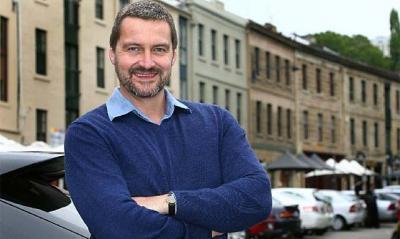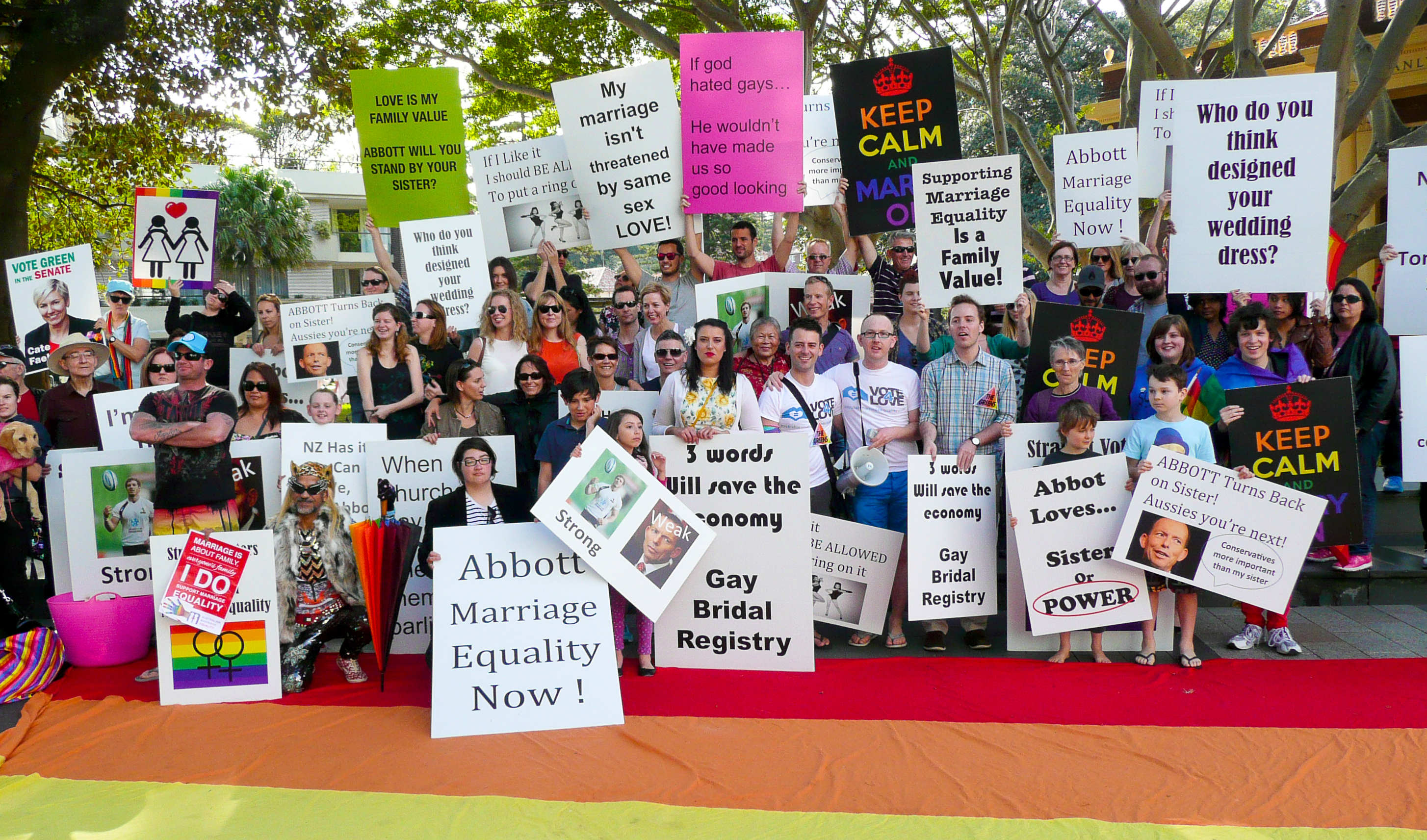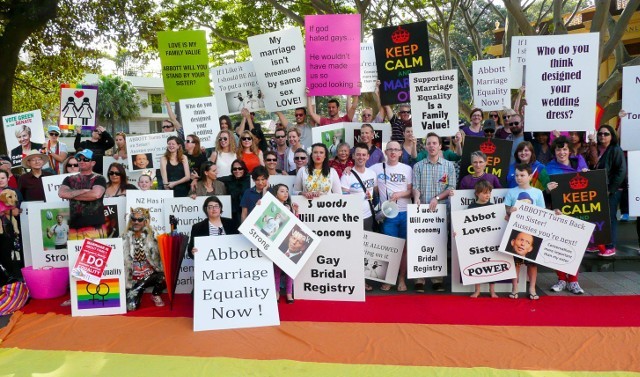THIS week is the most momentous in the history of the Australian marriage equality movement.

Yesterday the High Court heard the case for and against the ACT’s Marriage Equality Act. On Saturday, as the court won’t deliver its a verdict until 12 December, the first same-sex marriages will take place on Australian soil.
But this important and potentially very happy week has been overshadowed by recent rallies for marriage equality.
A banner at a recent Brisbane marriage equality rally attracted criticism for depicting Tony Abbott hanging by a rainbow noose, as has deliberate provocation of police by organisers of a similar rally in Perth. They came after controversy about a poster for a marriage equality rally in Sydney earlier this year that abused Tony Abbott.
All of these actions are deplorable, and not just because they show a remarkable lack of civility.
They drive away the people who most need to hear the marriage equality message, including suburban and regional Australians, the elderly and people of faith. They launch an unfair, partisan attack on the very people who will get marriage equality over the line – Coalition politicians whose belief in fairness and family make them potentially strong supporters.
They send the message that the marriage equality movement is about conflict and hate when it is actually about love and respect.
They give the impression that the future of marriage equality is frustrating and bleak when growing support means there’s every reason to be optimistic.
But ultimately, it’s not helpful to dwell on the handful of counterproductive and unrepresentative acts. A better response to recent events is to consider what actually works to promote reform and how supporters of marriage equality can demonstrate their support more constructively.
This year’s marriage equality community gatherings in Manly, organised by Nathan Thomas, James Argent and their friends, are a great example of what we should be doing around the nation.

The Manly community engagement were in Tony Abbott’s electorate and sought to persuade him to change his mind. They did this in a way which was respectful and optimistic, which brought together people from all walks of life and reached out to non-engaged citizens rather than driving them away.
The same ethos pervaded a series of marriage equality family barbecues in Tasmanian towns like Launceston, Ulverstone and Latrobe over the last 12 months. They brought diverse community members together, including parents, politicians, clergy, young families and older residents in an atmosphere that was festive and relaxed. The message from these barbecues was not just that marriage equality was important but that support for it was mainstream.
Most of all, these events were important because they provided a safe and supportive place for personal stories about marriage equality to be aired.
We know from the experience that such stories are critical to achieving marriage equality. Some of the most important personal stories in the marriage equality campaign emerged first at small, local events where there was the requisite time, space and calm for them to be properly spoken and heard.
I’m not saying rallies aren’t important.
In the early years of the marriage equality movement annual rallies were held on August 13 to commemorate the day in 2004 when the Marriage Act was amended to explicitly ban same-sex marriages. These rallies were organised by broad-based community action groups, drew thousands of people and inspired those who attended.
Now is the time to revisit that kind of annual day of action and to ensure it is owned by and representative of all the different voices supporting reform. It is also a good time to recognise that rallies aren’t enough.
The growing diversity among supporters of marriage equality means there needs to be equally diverse public events to highlight this support. Whether it’s a fun run, a fundraising dinner, a sausage sizzle or a march down main street, there are a number of ways to peacefully and respectfully show your support for marriage quality and educate others about its importance.
If you have an idea for a marriage equality event contact Australian Marriage Equality and we will do all we can to help out, including putting you in touch with other people interested in marriage equality.
Publication: Star Observer
Author: Rodney Croome
Date: 3 December 2013
To read original article, click here

